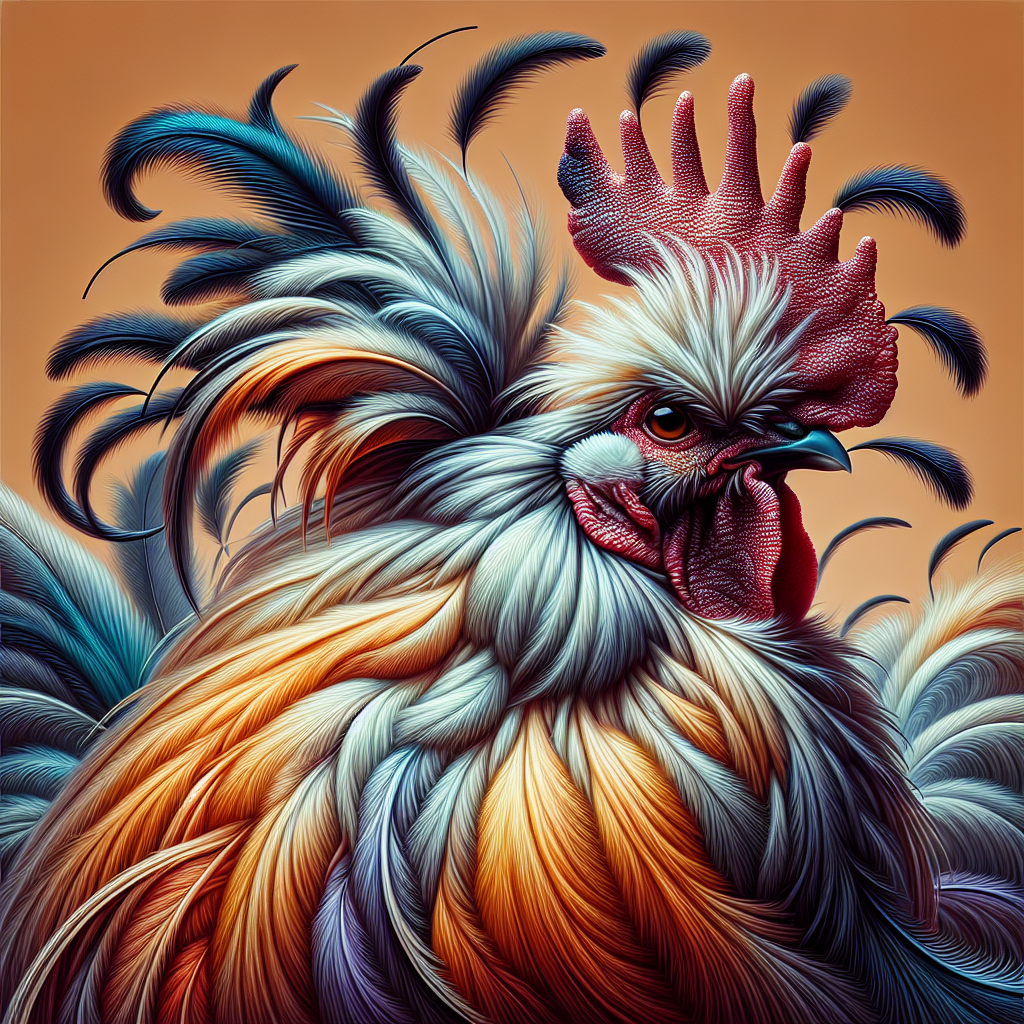Have you ever wondered about the differences between heritage breeds and modern hybrid breeds? These two types of breeds have distinct characteristics and play important roles in agriculture and animal husbandry. While heritage breeds can provide a connection to our farming history and have unique traits, modern hybrid breeds are often bred for specific purposes and display high productivity. In this article, we will explore the similarities and differences between these two types of breeds, shedding light on the benefits and considerations of each. So, whether you are an aspiring farmer or simply curious about the world of agriculture, join us as we delve into the fascinating world of heritage and modern hybrid breeds.
Advantages of Heritage Breeds
Genetic diversity
One of the major advantages of heritage breeds is their genetic diversity. Unlike modern hybrid breeds, which are bred for specific traits, heritage breeds have a wide range of genetic variations that have been naturally selected over time. This genetic diversity allows heritage breeds to adapt to different environmental conditions and makes them more resilient to diseases and other challenges. It also means that there is a greater chance of finding individuals with unique traits that may be beneficial in the future.
Adaptability to local environments
Heritage breeds have been raised in specific regions for centuries, and as a result, they have developed a natural ability to adapt to local conditions. They are well-suited to the climate, soil, and vegetation of their respective areas, making them better equipped to handle the challenges of farming in those environments. This adaptability reduces the need for external inputs such as artificial heating or cooling systems, which can be costly and energy-intensive.
Sustainability and self-sufficiency
Another advantage of heritage breeds is their ability to contribute to a more sustainable and self-sufficient agricultural system. These animals are typically well-suited to a free-range or pasture-based farming model, where they can graze on natural vegetation and forage. This reduces the reliance on external sources of feed and lowers the carbon footprint of the operation. Furthermore, heritage breeds have a higher likelihood of being able to reproduce naturally, reducing the need for artificial insemination or other reproductive technologies.
Flavor and taste
One of the undeniable advantages of heritage breeds is the superior flavor and taste of their meat or dairy products. These animals are often raised in small-scale, artisanal systems where they have access to a diverse range of forage and have ample time to develop their natural flavors. The result is meat that is rich, succulent, and marbled, and milk and dairy products that are creamy and full-bodied. Many consumers prefer the distinct taste and texture of heritage breed products, which can be attributed to the traditional breeding practices and higher fat content.
Advantages of Modern Hybrid Breeds
Higher productivity
Modern hybrid breeds have been selectively bred for high productivity, with a focus on traits such as fast growth, high milk production, or increased egg laying. These breeds have been optimized to produce larger quantities of meat, milk, or eggs compared to their heritage counterparts. This higher productivity can be a significant advantage for commercial farmers who need to meet the demands of a growing population or supply chain.
Improved growth rate
One of the key advantages of modern hybrid breeds is their accelerated growth rate. Through careful selection and genetic manipulation, breeders have been able to develop animals that grow at a faster pace, reaching market weight or maturity in a shorter period. This shortened production cycle can result in increased profitability for farmers, as it reduces the time and resources needed to raise the animals to a productive stage.
Efficiency in converting feed to meat or milk
Modern hybrid breeds have been bred for efficient feed conversion, meaning that they can convert a larger proportion of the feed they consume into meat, milk, or eggs. This efficiency is particularly important in large-scale operations, where feed costs can be a significant expense. By maximizing the conversion of feed into valuable products, farmers can optimize their production and reduce their overall costs.
Disease resistance
Modern hybrid breeds often exhibit increased resistance to common diseases and parasites. This can be attributed to the rigorous selection and breeding practices that focus on developing animals with strong immune systems and natural disease resistance. By reducing the incidence of illness, farmers can minimize the need for veterinary interventions and reduce the risk of disease outbreaks within their herds or flocks.
Heritage Breeds in Agriculture
Historical importance
Heritage breeds play a crucial role in preserving the historical and cultural heritage of agriculture. These breeds have a long-standing history and are often deeply rooted in the traditions and practices of specific regions or communities. By raising and preserving heritage breeds, farmers can contribute to the preservation of traditional farming methods, knowledge, and cultural identities.
Conservation efforts
Many heritage breeds are at risk of extinction due to changing agricultural practices and the dominance of modern hybrid breeds. Various organizations and individuals recognize the importance of conserving these breeds and work tirelessly to ensure their survival. By supporting heritage breeds in agriculture, farmers can actively participate in conservation efforts and contribute to maintaining biodiversity in the livestock industry.
Preserving cultural heritage
Heritage breeds are more than just animals; they are living connections to our past. These breeds often have historical and cultural significance, representing the farming practices and traditions of our ancestors. By raising heritage breeds, farmers can help preserve the cultural heritage associated with these animals, ensuring that future generations can learn from and appreciate the rich history of agriculture.
Modern Hybrid Breeds in Agriculture
Industrial farming practices
Modern hybrid breeds are often favored in industrial farming practices due to their high productivity and efficiency. These breeds are well-suited to intensive production systems that prioritize quantity over quality. The use of modern hybrid breeds has allowed for the scaling up of agricultural operations to meet the demands of growing populations and global food supply chains.
Meeting global food demands
Modern hybrids have played a significant role in meeting the ever-increasing global demand for meat, milk, and eggs. Their ability to produce larger quantities of products has made it possible to feed a growing population. With global food security being a pressing concern, modern hybrid breeds have contributed to the availability and affordability of animal protein worldwide.
Maximizing profitability
For commercial farmers, maximizing profitability is often a primary goal. Modern hybrid breeds offer a competitive advantage in this regard, as their high productivity and efficiency can translate into increased profits. The ability to generate larger quantities of products with reduced production costs can significantly impact the financial viability of farming operations.
Challenges with Heritage Breeds
Lower productivity compared to hybrids
One of the main challenges associated with heritage breeds is their lower productivity compared to modern hybrids. The genetic diversity and adaptation that make heritage breeds resilient can also result in slower growth rates, lower milk or egg production, and overall reduced yields. This can be a significant disadvantage for farmers who need to operate in a competitive market or meet demanding production targets.
Limited availability and genetic pool
Due to their relative rarity and the shrinking populations of some heritage breeds, accessing animals and maintaining a diverse genetic pool can be challenging. Unlike modern hybrids, which are readily available from commercial breeders, heritage breeds may require extensive research and networking to locate and acquire. The limited availability of these breeds can make it difficult for farmers who wish to transition to or continue working with heritage breeds.
Longer time to reach market weight
Heritage breeds often require more time to reach market weight compared to modern hybrids. This extended production cycle can increase the costs associated with feed, labor, and infrastructure. Farmers working with heritage breeds need to factor in these additional time and resource requirements when planning their operations and pricing their products.
Challenges with Modern Hybrid Breeds
Dependence on inputs and technology
One significant challenge with modern hybrid breeds is their dependence on external inputs and technology. These breeds have been bred with specific traits to maximize productivity, but often at the cost of reduced adaptability. In many cases, modern hybrids may require controlled environments, specialized equipment, and intensive management practices to maintain their productivity. This reliance on inputs and technology can increase the complexity and cost of farming operations.
Lack of genetic diversity
Modern hybrid breeds have been selectively bred for specific traits, which has often resulted in a loss of genetic diversity. This lack of diversity can make these breeds more vulnerable to diseases and environmental stressors. It also reduces the potential for adaptability and limits the ability to breed for new or unique traits in the future.
Potential health concerns
The selective breeding process that has given rise to modern hybrid breeds can sometimes lead to unintended health problems. In pursuit of specific traits, such as increased milk production or leaner meat, genetic weaknesses or susceptibilities may emerge. These health concerns can result in the need for increased veterinary intervention, medication, or specialized management practices to ensure the welfare and productivity of the animals.
Cost Considerations
Initial investment
When considering heritage or modern hybrid breeds, farmers need to evaluate the initial investment required. Modern hybrids are typically more readily available and may come with lower upfront costs due to economies of scale and the commercial availability of breeding stock. On the other hand, heritage breeds may require more substantial investments in terms of locating and acquiring suitable animals, as well as establishing the necessary infrastructure to accommodate their specific needs.
Maintenance costs
Maintenance costs also need to be taken into consideration when choosing a breed. Heritage breeds often have lower maintenance costs compared to modern hybrids, as they are more adapted to the local environment and require fewer additional inputs. However, heritage breeds may need specialized care or infrastructure to ensure their well-being and reproduction, which could result in additional expenses.
Market value
The market value of the products derived from heritage or modern hybrid breeds should be evaluated when making decisions. Consumer preferences, demand, and pricing for heritage breed products can vary significantly from those of modern hybrid breeds. Farmers should assess market opportunities and potential profitability based on the unique attributes and characteristics associated with the breed they choose.
Consumer Preferences
Taste and flavor
Consumer preferences for taste and flavor can heavily influence the choice between heritage and modern hybrid breeds. Many consumers prefer the rich, distinct flavors associated with heritage breed meat, milk, and eggs. The slower growth, natural diets, and traditional breeding methods employed for heritage breeds contribute to the development of these unique flavors. On the other hand, modern hybrid breeds are often associated with milder, more consistent tastes that cater to those who prioritize uniformity and consistency over individual flavor profiles.
Ethical concerns
Ethical considerations, such as animal welfare and sustainable farming practices, are becoming increasingly important to many consumers. Heritage breeds are often raised in small-scale, pasture-based systems that align with these values and offer a more natural and engaging environment for the animals. In contrast, modern hybrid breeds are more commonly associated with industrial farming practices that may raise concerns about animal welfare and environmental impact.
Environmental impact
Environmental impact is another factor influencing consumer preferences. Heritage breeds, with their ability to adapt to local environments and lower reliance on external inputs, are often considered to have a lesser environmental impact. They contribute to biodiversity conservation, require less land for production, and produce fewer greenhouse gas emissions compared to intensive modern hybrid systems. Consumers who prioritize sustainability and environmental stewardship may be more inclined to support the production of heritage breed products.
Market Trends
Demand for heritage breed products
Over the past decade, there has been a growing demand for heritage breed products among consumers who value traditional farming practices and unique flavors. This trend is driven by an increased interest in sustainable, local, and artisanal food production. Farmers who choose to raise heritage breeds can tap into this market and differentiate themselves by offering high-quality, traceable products with a compelling story behind them.
Preference for uniformity and consistency
While the demand for heritage breed products is on the rise, there is still a significant market preference for uniformity and consistency typically associated with modern hybrid breeds. Large-scale retailers and food service providers often require standardized products that meet specific quality and quantity criteria. For farmers aiming to supply these markets, modern hybrid breeds may be a more practical choice due to their ability to consistently produce large quantities of products with consistent quality attributes.
Conclusion
Choosing the right breed for specific goals in agriculture requires careful consideration of the advantages and challenges associated with both heritage and modern hybrid breeds. Heritage breeds offer genetic diversity, adaptability, sustainability, and superior flavor, while modern hybrid breeds provide higher productivity, improved growth rates, efficiency, and disease resistance. Understanding the historical importance, conservation efforts, and cultural heritage associated with heritage breeds, as well as the industry demands and profitability potential of modern hybrids, can guide farmers in finding a balance between tradition and innovation. Ultimately, the choice of breed should align with farmers’ goals, consumer preferences, and the unique characteristics of the local environment.




